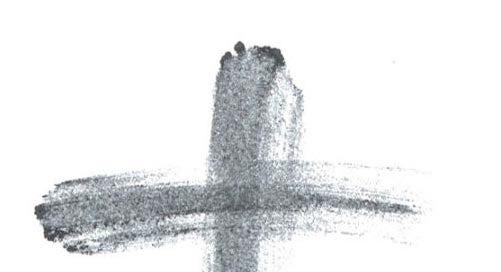Ash Wednesday is a day when we come face to face with a truth that lingers beneath the surface of our daily lives: we are dust, and to dust, we shall return. It is a day when the illusion of permanence slips away, when we are reminded that our lives—beautiful, complicated, sacred as they are—are finite. It can be unsettling to name our mortality so plainly, to feel the smear of ash on our skin and know that one day, we will be gone. And yet, I love this day. I love this season.
Lent has always been my favorite stretch of the liturgical year, not because it is easy, but because it is honest. In a world that urges us to curate, polish, and pretend, Lent asks us to strip away the pretense. It invites us to step into the wilderness of our own souls, to acknowledge what is broken, and to make space for what is being restored. It reminds us that even in our frailty, we belong to something eternal.
We are not just dust; we are stardust. Formed from the same elements that forged galaxies, the same topsoil that nourishes towering redwoods, the same ash that lingers after fire has done its work. We carry in our bones the remnants of ancient supernovas, the minerals of the deep earth, the breath of the Divine. We are part of something vast and wild, something that stretches beyond our own brief existence. The ashes we wear today are not just a mark of our mortality; they are a reminder of our belonging—to the earth, to the stars, to the One who formed us from dust and breathed life into us. They call us to live fully—not in fear of death, but in reverence for life.
But this season isn’t just about personal reflection; it’s also about communal repentance. The Church, as an institution, has much to confess. For generations, it has been a place of harm for so many—particularly for those on the margins. As a gay man, I know what it is to be told that my belovedness comes with conditions, that God’s love for me is somehow different, that the very body and soul I was given are in need of fixing. And yet, the ashes tell the truth that so much of the Church has failed to say: we all come from the same dust. No one is less sacred than another. No one is outside the reach of grace.
Lent is a time for institutions to confront their own failings, to name the ways they have excluded, silenced, and harmed. To repent not just in words, but in action. Because repentance is not about shame—it’s about transformation. It’s about turning away from what has been and moving toward what could be.
And in all of this, Lent is an invitation to draw closer to God. To sit in the quiet and listen. To return to the One who has never turned away from us, no matter how many times we’ve been told otherwise. To deepen our relationship with the Divine—not through fear, but through love.
So, I leave you with an invitation to observe a holy Lent:
If your heart feels heavy, if you're carrying sorrow or regret,
if you're longing for a fresh start—there is room for you here.
If the world’s heartbreak weighs on you, if you’re searching for a place to belong,
if you’re ready to turn back toward love—this community welcomes you.
Come as you are. No exceptions, no conditions. You are held here.
Lent is not about proving ourselves worthy. It’s about remembering that we already are.
It’s about turning back toward the One who has never turned away.
It’s about making space for mercy, for healing, for grace to do its quiet work within us.
The psalmist prays: “Have mercy on me, O God, according to your steadfast love.”
And that love is already here, waiting to meet us.
So today, we step into this sacred season—not with fear, but with trust.
Not with shame, but with hope.
Not alone, but together.
Let us enter this season with courage, knowing we are never alone—
turning toward mercy, toward healing, toward the One who calls us beloved.





Wow! That paragraph about we are not just dust, we are stardust is absolutely beautiful.
Thank you for those timely words, James. 😊